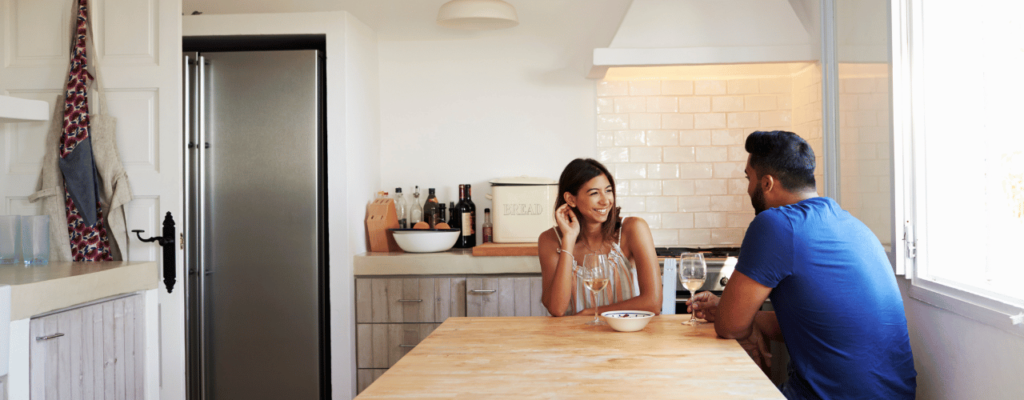The Science, Art and Spirit of Communication

Communication is fundamental to our relationships and the flourishing of families. If we want to do it well, there is a science, art and spirit to communication.
We all like to think of ourselves as good communicators. Unfortunately, what that usually means is: I have lots to say and I’m not afraid to say it! That’s because a lot of people equate being talkative with good communication.
In truth, effective communication is not about the quantity of information. It’s about how we connect with our listener.
Back to the roots
The Latin roots of the word ‘communication’ indicate that it is about more than the transmission of thoughts. Derived from the word ‘common’, it has the same roots as ‘communion’ and ‘community’.
From this we could reframe communication as the process by which we become united in understanding.
So, in family life, effective communication is not so much about broadcasting of our thoughts and opinions. Rather it is the means in which we share our experience and perspectives with each other for the purpose of our common life of intimacy and caring.
With that in mind, try these ideas for enhancing your family communication.
Environmental Science
Healthy communication needs space: space in our busy schedules and in our cluttered homes. This means thinking about the physical space as well as the mental space.
We all have different tolerances for noise or visual distractions. Background noise or physical clutter in our communal spaces can be distracting to some members.
The biggest enemy to family communication are mobile devices. Although difficult, a device-free zone, such as during dinner or after a certain time, can bring some discipline around their use and open the space for communication.
We’ve found fire to be a help here. There’s something very primal about gathering around a fire that makes electronic devices feel intrusive.
Whether it’s the open fire in the lounge or the outdoor firepit, we have wonderful, leisurely conversations in the presence of fire. Soft lighting and candles are another way to create the mood for human connection in more confined spaces.
The point is to intentionally create a conversation-friendly environment. If we’re stressed and overloaded, or distracted by devices, we won’t have the mental energy or focus to be truly present to others, no matter how moody the lighting.
The Art of Trust
Intimate verbal communication rarely occurs from a cold start up. We need a period of lighter conversation to warm us up.
For family communication, this means having lots of regular, relaxed conversation. From this space of trust, deeper topics will often spontaneously emerge without us even trying.
One way we did this with our five children was a simple ritual over dinner sharing: what was the best and worst today? It was an easy way for everyone to contribute without the more extraverted dominating the conversation.
After everyone had a chance to speak the ‘session’ was over. We didn’t try to drag it out and we didn’t force anyone to speak. We did make some effort to keep on topic so that anyone who spoke felt heard.
Godly Conversation
God wants us to have healthy family relationships. It’s the sacred work of the domestic church: the ordinary, everyday conversations that communicate love and acceptance to each other.
God loves and accepts each precious person. When we encounter love and acceptance in our family – even though flawed – it opens us to the reality of God’s immense love for us.
God is father to us and knows the frustration and heartache we experience as parents. What could be more natural than to ask him for help in raising our children and in creating healthy communication rituals?
Not sure how to do that? At its simplest, prayer is a conversation with God. So, the same principles for family communication apply to prayer: create the environment, detach from devices, start softly with light conversation, and make it a regular ritual.




